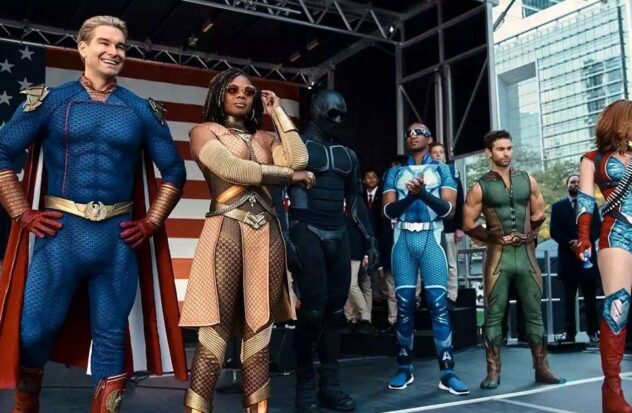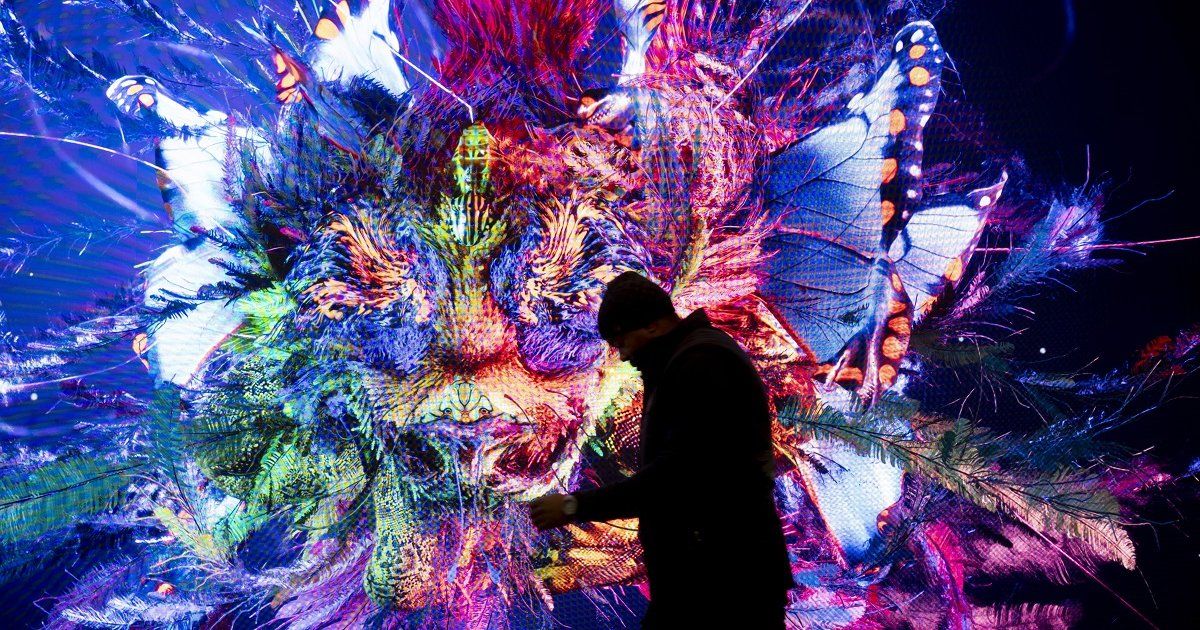There are few new things that can be said about superheroes today. Marvel and DC have taken it upon themselves to monopolize the discourse around them to feed movie theaters and streaming services. Betting on the creation of “universes”, the genre has been suffering for some time from a kind of elephantiasis that forces the public to have to consume hundreds of hours of content in order not to lose the common thread that unites character A with antagonist B and that could lead to in a potential meeting in the feature film C. This uroboric dynamic, where products are only sustained by having the seal of a certain studio, was profitable for more than a decade, but for a couple of years it has been experiencing its decline. Perhaps—and almost as a response against the mainstream—part of the success of The Boys, one of the spearheads of Prime Video, is due to this disagreement. Based on the comic of the same name by Garth Ennis and Darick Robertson (and adapted to the screen by Eric Kripke).
The Boys appeared in 2019 as a balm that revitalized the potential of superheroes by deconstructing and humanizing them — pathologies included. Completely separating itself from the binary discourses between good and evil, the story explores themes that would easily be key in our daily lives if these characters really existed: what are the political implications that a nation that has people with disabilities must face? extraordinary powers? What would happen if these “heroes” were owned by private companies and received the treatment of rockstars (who, thanks to their skills and profitability, have carte blanche to do anything)? How to control hubris of an all-powerful and immortal being with tyrannical delusions? These and many more questions are what the series has been developing in each of its seasons and this week the fourth and penultimate of this risky story arrives on Prime Video.
Set a few days after the previous installment, this season takes place in a North America polarized between Republicans and Democrats who, at the same time, project all their ideals on two great heroes: Homelander (Antony Starr) and Starlight (Erin Moriarty). The tensions between both sides, the climate of political uncertainty and the need for a change in the laws around superheroes form the context that supports this new dramatic arc. In parallel, The Boys, the group of dissidents who want to expose the superheroes’ crimes and put an end to Homelander, try to build alliances with different antagonists while continuing with their own agenda behind the scenes. Things get complicated for everyone when Homelander decides to join The Seven with two new heroines: Sister Sage (Susan Heyward), the smartest person on the planet, and Firecracker (Valorie Curry), a conspiracy theorist who agitates the masses with her wild theories. of internet forums. Both end up creating an extremely dangerous cocktail that agitates the political climate to the point of leading the country to an imminent social outbreak. This will cause The Boys to have to make extreme and, in some cases, irreconcilable decisions among themselves, to try to stop the countdown that threatens to destroy them all.
While it is true that The Boys has always been a series with a very marked component of social criticism, it is in this season where power intrigues, government and politics play the most predominant role in the plot. Media manipulation to exacerbate the fanaticism of the masses, the strength of private industry and its control over the State, the double agents who do inside jobs, the dynamics of the scapegoat, the dichotomy between strategy and violence, cancellation, Racism and false patriotism are some of the themes that the chapters explore with the wit and black humor that characterizes the series. Leaving aside the similarities—at times frightening—with what is currently happening in the United States and the world, This arc also focuses on the consequences that their past has for many characters (exploring backstories for the present), the complex dynamics of paternalism, the need for redemption, the fear of vulnerability, the inexorable passage of time — and the proximity of death -, the struggle between love and resentment, idealism in a lawless world and the eternal dilemma of not transforming yourself into a monster while fighting one. The result is a season that is a little more mature—and dark—compared to the previous ones (without losing the tone of comedy, gore, satire and absurdity that the series has always had) and that serves as an appetizer for the expected end of the Serie.
One of the main virtues that The Boys has is the complexity of its characters and the time it takes to explore them. Although at first glance it seems that the line between “good guys and bad guys” is quite clear, with each episode the limits blur and this season is no exception (making us empathize with antagonists and demolishing a certain idealism that we had projected onto some protagonists). If in the last installment the magnifying glass was placed on Butcher (Karl Urban) and Homelander, in this one the screen exploration time of the rest of The Boys and The Seven is much more level (without, however, leaving aside the conflicts that corrode both leaders of each competing group: the first progressively turning to the “dark side” and the second becoming increasingly vulnerable). At the same time, this fourth season takes the time to delve into several secondary characters that we already know, bring back forgotten ones, give us a couple of wonderful cameos and give time (and weight) in the plot to the new members of the cast. which will be key in the closing of The Boys.
Continuing with the model of the past seasons, this new installment meets all the landmarks of its predecessors: there are absurd action sequences and gore, bawdy scenes full of paraphilias, deeply moving moments, surprising deaths, Supes that parody heroes from Marvel and DC, twists that make you question the direction of the story, love-hate relationships with the characters (and the dynamics between them), criticism of the establishment and dialogues constructed to hurt all kinds of sensibilities. The big difference is that we are already beginning to have the feeling of an imminent end in certain conflicts and some dramatic arcs seem almost ready to close (especially after the cliffhanger with which this season ends).
As always, we are more than satisfied with the performances. The entire cast is wonderful and perfectly leveled, exploring multiple registers (such as the histrionics of Colby Minifie, the romantic comedy with Tomer Capone and Karen Fukuhara, the parody with Chace Crawford, the suspense with Jeffrey Dean Morgan, etc.). But, as usual, it is Antony Starr and Karl Urban who steal the show. Karl Urban offers us a Butcher who must deal with a ticking clock that forces him to become much more radicalized and that brings out the most psychopathic and self-destructive part of him. Anthony Starr continues to explore all the nuances of Homelander with mastery, this time putting the emphasis on his paternal dynamic, the confrontation with his most emotional part (which makes him dependent on the approval and “love” of others) and the awareness of his own vulnerability. Susan Heyward, as an addition to the group, is great and becomes a fascinating antagonistic force (making up for one of the weak legs they had in The Seven) that has little or nothing to envy of other counterparts in the group. Valorie Curry is another pleasant surprise who shines as a resentful mass agitator and Homelander’s number one fan. Jeffrey Dean Morgan also shines in his “tough guy” appearances that, at times, make Butcher look like a baby. Curiously, the one who shines the least of the entire group is Cameron Crovetti. Although Ryan is a key character in the story – and is present in almost every chapter, debating between Butcher and Homelander to project his father figure – his arc still does not finish developing with the complexities that one might expect. Possibly the writers are saving his evolution as a big pay-off in the final season.
This fourth (and penultimate) season of The Boys is a hinge that collects the consequences of many of the actions in the story and, in parallel, lays the solid foundations that will support the end of the series. Although it continues to maintain its particular tone of black humor and gore, this new installment is closer to a political thriller and drama than to the action and self-confidence to which we are accustomed. As is customary, between nervous laughter and biting dialogues, The Boys takes an x-ray of North American—and world—politics, exposing the inconsistencies of both sides and inviting us to reflect on our position as citizens in the fight against power. At the same time, this season focuses on the need to face our past in order to grow and obtain the redemption that many of us long for regardless of the context in which we find ourselves. Valuable lessons that invite us to surf the collective chaos that we experience and that remind us that it is not necessary to lose our humanity in order to achieve real change in the world.
The best: being able to delve into the backstory of several of the main characters. Political intrigues, their development and their similarity to reality. The new Supes and their functionality within the plot. The twists of the script and the cameos.
The bad: The cliffhanger with which the season ends is the heaviest of the entire series and having to wait 1 year to resolve it is diabolical. Some irreversible decisions within the story happen very quickly and there is no chance to assimilate them with everything that is happening.
Review by: Luis Bond // @luisbond009
About the Author:
Luis Bond He is a director, screenwriter, editor and teacher. Since 2010 he has dedicated himself to film criticism on the web, radio and print publications. He is a Tomatometer-approved critic on Rotten Tomatoes (). His training in cinema has been complemented with studies in Deep Analytical Psychology and Symbology. He is co-host of the Axis Mundi podcast where he delves into film analysis, literature, psychology and symbolic languages.
Twitter (X), Instagram, Threads, TikTok: @luisbond009


